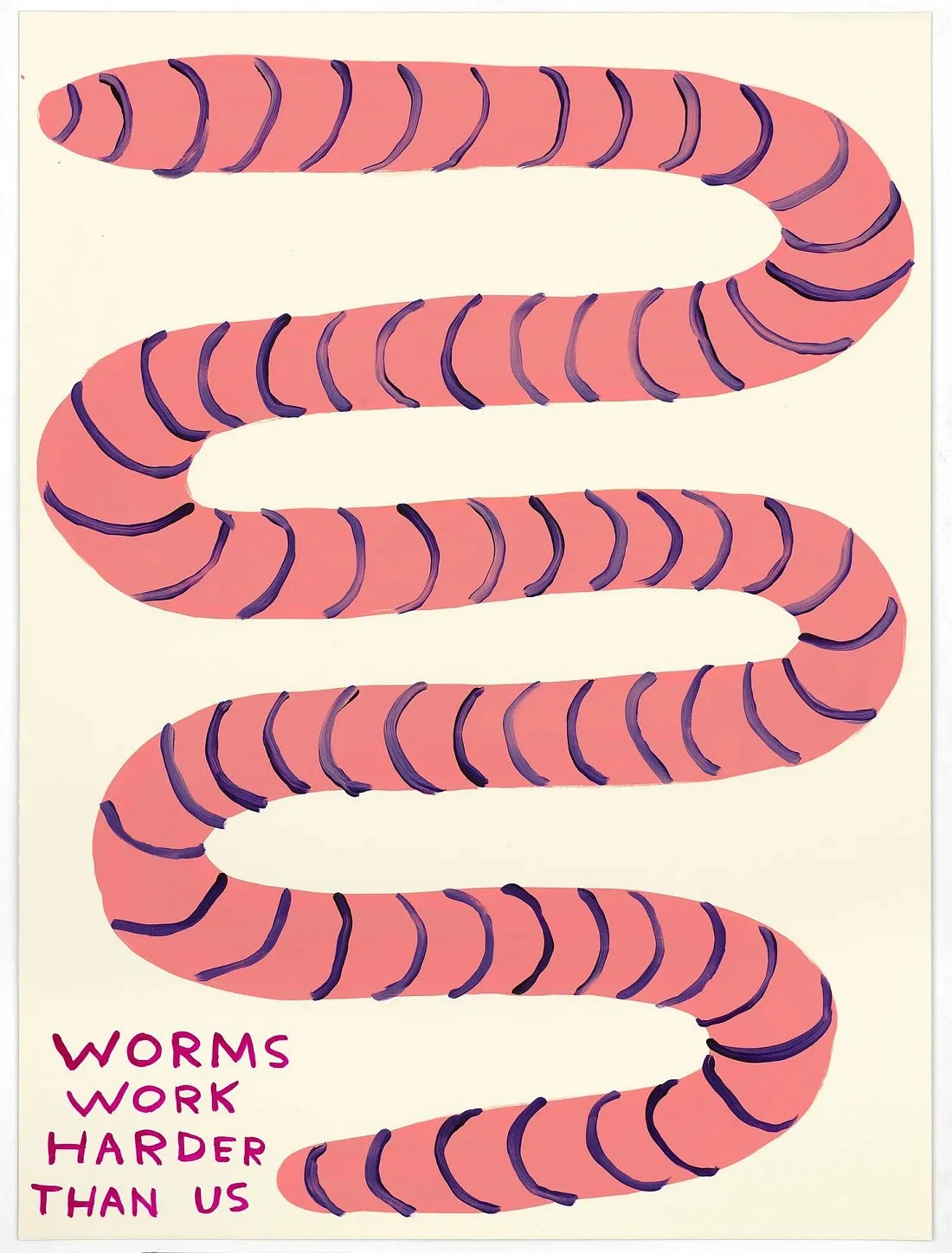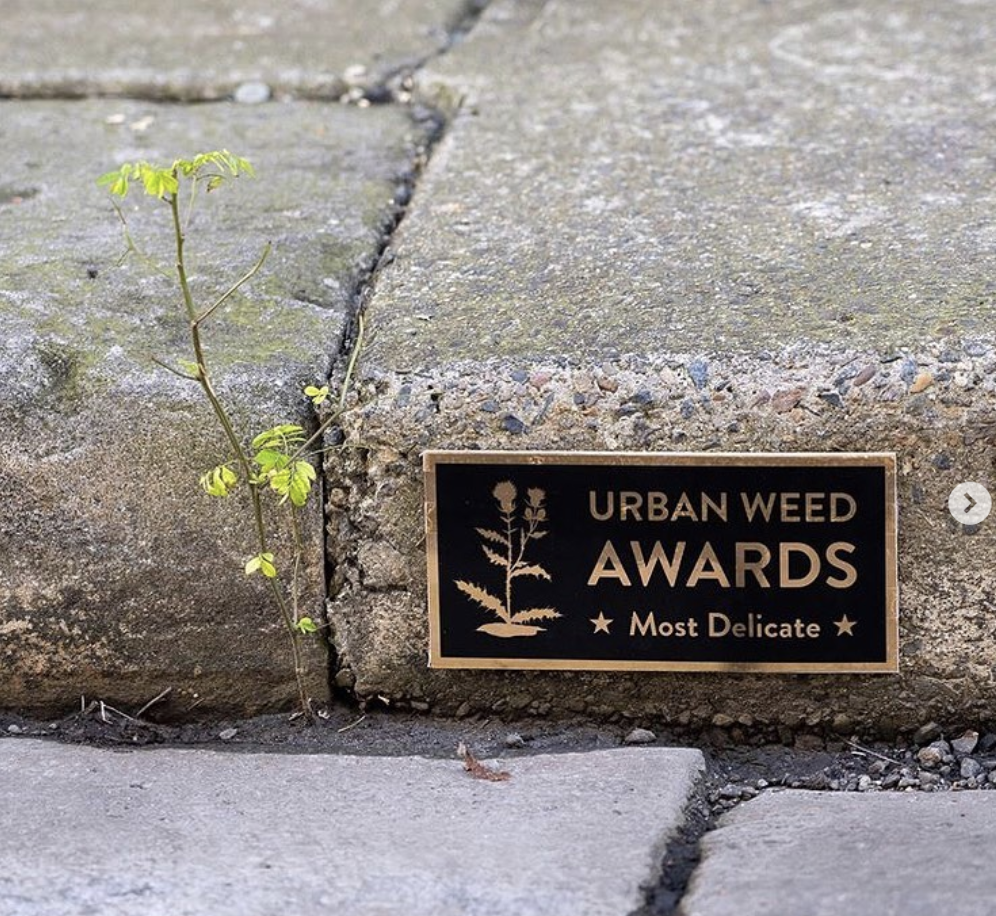Gardening :: 078
Good Morning!
Photograph I took in May 2020
How Do You Really Feel?
When we first toured what is now our house, the real estate listing described a "park-like backyard." I'll stand at the top of the driveway looking at the kids riding bikes and digging in the dirt. And replay our family joke: "Omg, so park like!" (I didn't say it was funny)
We moved to the suburbs in 2021 and silly me, I believed I could manage our park-like backyard. I have a rake. I can shovel. My mom planted flowers every year. Why can't I?
And every fall I laugh at that naive boy.
The first year I raked, it took over an hour. And there were twice as many more leaves that fell the next day. And the day after that.
Every spring, I don't know where I'd find time to weed and mow.
Because if I'm going to be honest, I don't like to garden.
There's a lot of people out there who love it. You might be one of them. Nothing wrong with that. But I've learned that right now, it's not for me.
I don't mind getting my hands dirty or taking care of my house plants (ahem: watering for 3 seconds once a week) Especially in this season my my life, it's just not a priority.
It just feels like work.
That's what I want to talk about this month.
Gardening, yes. But not just the planting and mowing and pruning. Gardening as a metaphor. Gardening as a way to think about authenticity, time, growth, ecosystems, and beauty.
Get your gloves, let's dig in.
Rethinking Weeds
There's a seam along our driveway where it runs along the house.
And out from that crack sprouts magnificent bunches of dandelion flowers and thick tufts of grass. They're weeds, I know. I think about it every time I pull them out.
Because a week or two later, there they are again.
I'm amazed thinking about the dichotomy of effort: there are plants that I've tried growing that require a precise amount of water, indirect sunlight, pH neutral soil.
And then there are these flowers that bloom, despite my every effort (minus carcinogenic chemicals) to stop them.
Weeds are underrated.
We think about them as invaders, eye-sores, and malicious infesters. But they're capable of creating life in places they're not wanted. They can grow literally anywhere.
That feels like a powerful metaphor that we labeled wrong.
And not just weeds.
Leeches and parasites too are all seen as life-sucking scourges. Except they're only harmful when we think about them through the myopic lens of the hard-working host. But they're part of a larger ecosystem.
They contribute in other ways.
They contribute to biodiversity and regulate host populations.
And this is where the metaphor takes a turn.
Because when it comes to humans (specifically the economy) we seem to only value the workers. The creators. The producers. In other words, the hosts that provide.
But just like animals, the larger ecosystem actually requires that not every being is a creator. In our case, the students, caretakers, parents, artists, community-builders, and social service providers are so crucial to a well-functioning and flourishing society and don't often get paid for that work. Why do we overlook their contributions?
If this is true, it makes the idea of health insurance tied to employment feel so stupid. And universal basic income seem reasonable. And merit-based capitalism racist, classist, and sexist... by design.
Everyone, merely by being alive, belongs here.
Weeds are admirable.
Parasites are valuable.
Leeches are worthy of thriving.
They all contribute in meaningful ways.
And so do you.
Considering the Tree
In our front yard
stands a maple tree maybe 80 feet tall.
Its trunk wider than a car, seemingly made from two full healthy trees
joined at their base, splitting upward. It must be 200 years old or more.
I think about this tree's life. It has seen every hours in our neighborhood spring up from farmland. I imagine the 200 winters it has endured of snow and ice and cold; shedding its leaves for 200 autumns and regrowing them again, stronger for 200 springs. and the 200 summers of sweltering dry heat with kids climbing its branches. It's humbling to think about our lives in comparison. In the timeline of trees, we will all be born, thrive, struggle, and die. The blip of time we're here compared to the long lives of trees. We will be dead while these maples and pines and oaks will continue to grow. About a foot a year. An inch per month. They will keep growing. And growing skyward for another century. Maybe more. Long after this president leaves office. After we retire and our kids' grow old. And we sell our house and the next owners sell it. Everything else in our world is moving so fast. New phone. The latest meme. Trend. Fashion. Joke. Celebrity gossip. AI! Oh my! As we try to keep up with the speed of the world, a growing tree seems to not be moving at all. But it is. It's easy to get dark and ask, "If we are mere blips, so why does this life matter?"
I think about trees and two things come to mind...
First, There are those people
that want to magnify their blips.
Carve their name into the tree
and feel like that did something.
Or to cut down the tree
and make something with it.
And there are those that sit.
Enjoy the shade and the fruit.
And they want to plant more.
Future thinkers. Creating legacy
not by making an impact on the present
But by giving to the future. Providing the conditions for growth and sowing for their children's children for trees they will never see. And also, considering the tree in the first place. When I look for hope for the future, it's not the resources the maples give now or the carvings of names into the bark from people trying to make their legacy loud today.
Instead, it's by looking for the way those maples started.
Because hope for the future is not in the branches.
It starts like any other giant maple
As a tiny
s
e
e
d
that roots and creates for the next to enjoy the shade
down opportunity generation and the fruit.
Think Like A Gardener
The rain has finally stopped after two days and Golda's out in the back yard, playing in the mud. She's got thick pink snow pants and purple boots on under a lavender unicorn raincoat. Slopping handfuls of clay-like mud on top of a bucket, she's building a castle for the worms she found.
I step outside to see and I notice how sensory the experience is: The petrichor wafting up from the concrete driveway; the light flecks of drizzle all around; The pittering from gutters and trees; a whole rainbow of greens and browns vibrating with the rain.
It's enveloping.
And then, before too long, it's time to go inside. We clean up and make our way to the couch to rest. The tv goes on and click. boom. [Netflix mnemonic]. We're zombies. Just. Watching.
SO much of my day is spent in one sense at a time– looking at a screen. Eating a meal. Writing in a notebook. I see that gardening is multisensory. And that's what makes it immersive. I'm not a gardener, but I like spending time in my garden. Probably for that reason.
We crave immersive experiences–feeling of escape, belonging, and Flow. Being in Flow enhances our enjoyment, happiness, performance, learning. And it requires our full attention. Which is why it's so elusive. I've stopped and started writing this essay about 25 times because I'm refreshing my inbox and checking my phone. Immersive experiences require multisensory rituals. To cook for the enjoyment of the smells and sounds and tastes. To paint while we spread the thick colors on our palette and take in the linseed oil and turpentine. To hike and look around at the sites while feeling the earth underneath. To swim. Bike. And bake. To pick up a guitar and sing.
They demand so much of our attention that there's no other choice but to be in the present. And in a world where our attention is for sale–and consuming us as much as we're consuming it– giving our full attention is a respite. It's immersive.
It's so easy to just flip on the tv or unlock a phone and start a single-sense experience. I'd like to think more like a gardener.
Thanks for taking the time today to prune your mental garden and immerse yourself a bit.
Always love hearing from you. Enjoy the spring...
Refrigeyalater,
Jake
Tweettweet! Me again...
A few topics I cut from this month: digital gardens and learning publicly, being an accidentally murderous plant owner, and inside jokes are conversational seeds.
If someone forwarded this Email Refrigerator to you and you'd like one every month, sign up here.
Read the last 77 issues here.
If a monthly refrigerator springing up in your inbox needs to be weeded, click here to unsubscribe.
The Email Refrigerator is a monthly delivery of essays, poetry, imagery, and thoughts, written and curated by Jake Kahana. Why a refrigerator? Well, it's where we look for snacks, a little freshness, and where we hang the latest, greatest work. And besides, "newsletter" sounds like spam.





